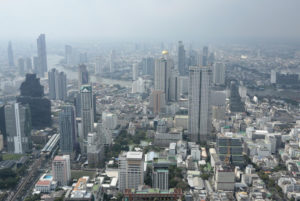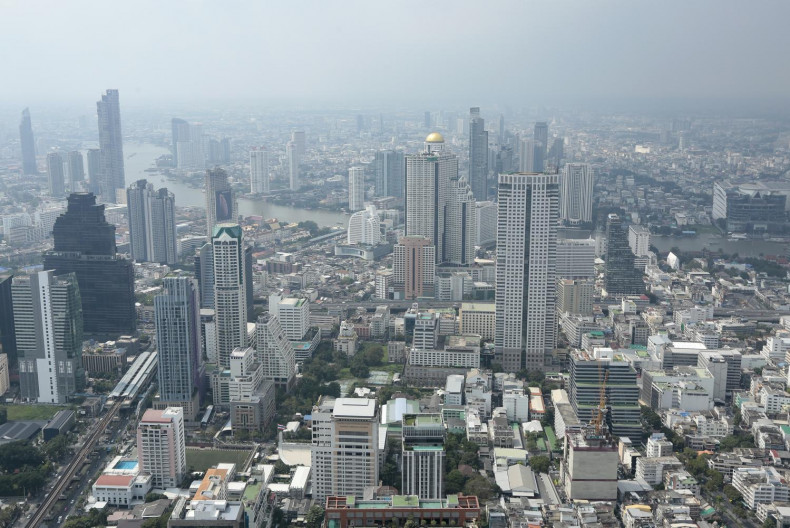
Thailand’s Finance and Interior Ministries vow to ease land & building tax
Call to loosen loan-to-value regulations
The Finance Ministry and Interior Ministry have pledged to improve the land and building tax to prevent a negative impact on the public amid several economic challenges.
Speaking at the annual property seminar held on Wednesday by the three major real estate associations in Thailand, Paopoom Rojanasakul, secretary to the finance minister, said the proposed improvements to the land and building tax aim to enhance both efficiency of collection and levy an appropriate rate.
“The tax rates should not intensify hardships for people when economic conditions remain fragile,” said Mr Paopoom.
He called on the Bank of Thailand to ease loan-to-value (LTV) regulations to stimulate the real estate sector, which would help to propel the economy.
“The central bank should not view the relaxation of stringent LTV measures as encouraging the public to take on more loans. On the contrary, this should be seen in a positive light, as it could potentially stimulate the economy,” said Mr Paopoom.
In addition, he urged financial institutions to relax their credit conditions, allowing people greater access to credit. Financial institutions need to embrace increased risk, finding a balance between risk and stability, said Mr Paopoom.
He said the Finance Ministry acknowledges the importance of the real estate market, implementing stimulus measures for the sector this year including both tax and financial policies.
The tax measures include a deduction in personal income tax for income paid on interest for loans used to purchase, lease or build residential properties, with a maximum deduction of 100,000 baht.
In addition, a 90% reduction of the land and building tax burden is offered to owners of land or buildings under development for up to three years, aiming to ease the tax burden during construction.
Other measures include a tax exemption for common property designated for joint ownership under the Condominiums Act, or land for public service under the Land Allocation Act or the Industrial Estate Authority of Thailand Act.
The government also extended the land and building tax collection period this year for an additional two months and reduced the transfer fee from 2% to 1%, while lowering the mortgage fee from 1% to 0.01% to bolster the housing market.
Another state financial measure is the “One Million Homes Project”, aiming to help homebuyers find affordable homes. The Government Housing Bank offers flexible loans with a budget of 20 billion baht, providing mortgages of up to 1.5 million baht per borrower for a maximum repayment term of 40 years, with a fixed annual interest rate of 3% for the first five years.
The “Happy Life Credit Project” supports Thais buying their own homes with loans starting from 2.5 million baht per borrower.
The maximum loan term is 40 years, with an average interest rate of 2.98% per year for the first three years and a minimum interest rate of 1.95% per year in the first year.
Youthapoom Charusreni, director of the modelling and forecasting division of the Fiscal Policy Office, said the likelihood of Thailand entering a technical recession this year significantly decreased after January’s economic figures were better than expected.
The economic indicators for February and March are also expected to be positive, with foreign tourist arrivals for the first three months projected to exceed estimates, he said.
Given these factors, Mr Youthapoom said the chances of Thailand’s economy contracting for two consecutive quarters, deemed a technical recession, are slim.
The economy contracted 0.6% quarter-on-quarter in the fourth quarter of 2023, compared with an increase of 0.6% in the third quarter.
Somjai Phagaphasvivat, an independent political and economic analyst, said the Russia-Ukraine war is unlikely to end soon.
However, he said the impact on energy and food prices should not be as severe as during the initial stages of the conflict two years ago.
Regarding the Middle East conflict, Mr Somjai said he believes it will not escalate further, with minimal chances of expanding into Iran.
China’s economy remains a concern because of its depleted internal resources and continued pressure from the US, resulting in the lowest investment levels in the mainland in 30 years, he said.
Meanwhile, the US economy is showing signs of slowing compared with the previous year, said Mr Somjai.
Source: https://www.bangkokpost.com/property/2754431/ministries-vow-to-ease-land-building-tax


